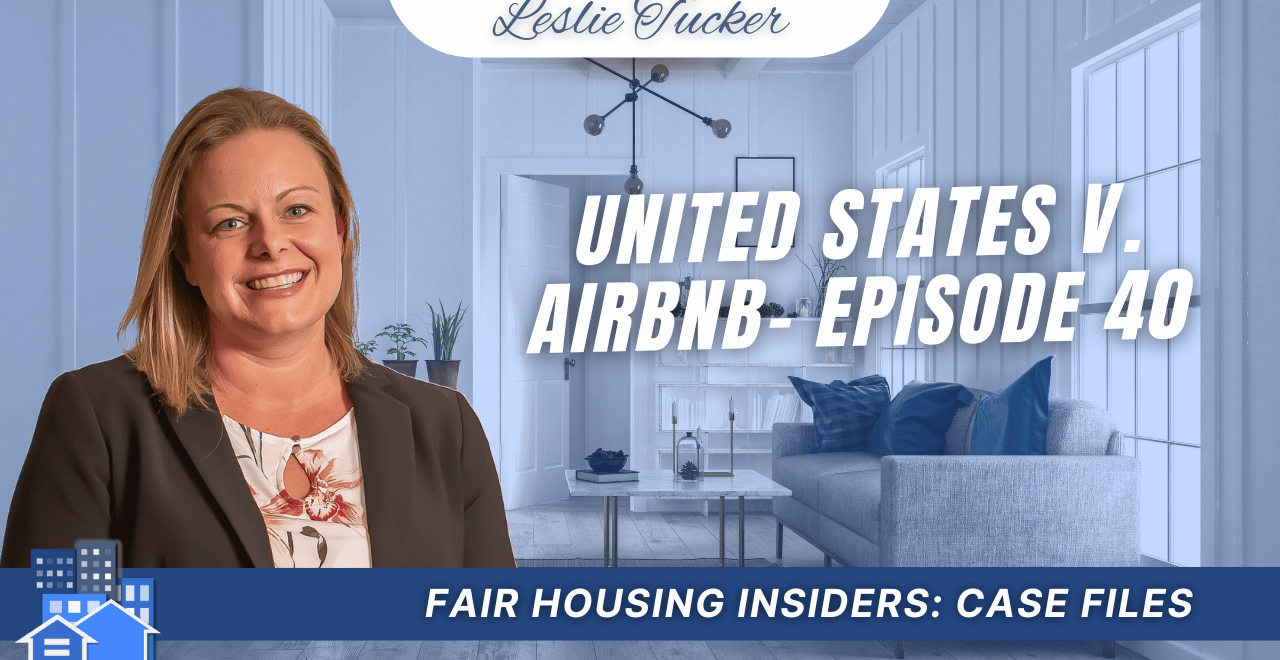Short-term rentals have become a convenient solution for everything from vacations to transitional housing. But with this convenience comes a responsibility to ensure compliance with the Fair Housing Act (FHA). The case of United States v. Airbnb highlights how platform features and host practices—if not carefully managed—can lead to allegations of unlawful discrimination, particularly against families with children.
United States v. Airbnb – The Case Background
Cherise and Christopher were relocating from Alabama to Hawaii. While Christopher moved ahead to secure work and housing, Cherise needed temporary housing for herself and their three children to finish the school year in Huntsville. She found an Airbnb listing that seemed like a good fit—until she noticed it was labeled “not suitable for children and infants.” Despite explaining that her children were older and well-behaved, the host allegedly denied her request. Cherise reminded the host that the Fair Housing Act prohibits discrimination against families with children, but the host stood firm. When she contacted Airbnb customer service, they backed the host’s decision, citing company policy.
This response raised legal concerns about whether Airbnb, in addition to the host, played a role in violating federal housing laws by enabling this kind of exclusion.
What the Fair Housing Act Says
The Fair Housing Act makes it illegal to discriminate based on familial status. This means housing providers cannot refuse to rent, impose different conditions, or create policies that discourage families with children from accessing housing. In this case, the government argues that listing a property as unsuitable for children, without any legal exemption, constitutes a violation. Such language effectively discourages families from applying and limits their access to housing, which is precisely the kind of exclusion the law aims to prevent.
Does the FHA Apply to Short-Term Rentals?
A common question that arises is whether short-term rentals fall under the Fair Housing Act. In this case, Cherise intended to rent the property for approximately three months. While not a permanent residence, this arrangement wasn’t transient or recreational either—it was meant to provide stable housing during a transitional period.
Whether a property is considered a “dwelling” under the FHA depends on the context, and courts often look at how the property is used. Among other things, they consider whether the occupants are maintaining the home, preparing meals, spending time in common areas, and whether they have another residence. The duration of the stay also matters, though no specific time frame determines applicability. In Cherise’s case, she had sold her previous home, and this rental was meant to serve as a temporary home base. That context makes it likely that the Fair Housing Act would apply.
Safety Concerns vs. Discriminatory Practices
One of the most common justifications for excluding children from rental properties is safety. A property may have features like open balconies or steep stairs that raise concerns. While these risks are valid, property owners cannot use them to justify blanket exclusions. Instead, they should disclose any specific safety concerns and allow families to decide for themselves whether the property meets their needs. The key is transparency without imposing restrictions based solely on a household having children.
A Warning About Platform Tools
This case also brings attention to the role of third-party platforms like Airbnb. Tools that allow hosts to label a unit as “not suitable for children” can be problematic if they result in discriminatory outcomes. When a platform enforces or facilitates those kinds of restrictions, it can become part of the issue, even if unintentionally. Property managers and housing providers should review how their properties are marketed and ensure that any mention of children—especially exclusions—is legally justified.
Only properties that fall under exemptions like the Housing for Older Persons Act (HOPA) are allowed to exclude families with children. If a provider is unsure about their property’s status under HOPA, they should seek legal guidance before listing.
Final Thoughts
The United States v. Airbnb case serves as a timely reminder that the Fair Housing Act applies across all forms of housing, which can include transitional and short-term rentals in certain circumstances. Regardless of whether a property is listed on a platform or marketed independently, the standards of compliance remain the same. Exclusions based on familial status—however subtle—can open the door to legal challenges.
Housing providers must stay aware of how listings are written, how platform tools are used, and how policies are enforced. As housing models evolve, the responsibility to uphold fair housing standards remains constant.
You Might Also Like:
- Update on the Accessible Parking Case You’ve Been Following – Episode 49
- When Eviction Becomes Retaliation – Episode 48
- Case Files: The Price of Parking Discrimination – Episode 47
- Case Files: ESA Denied After Online Provider Verification—What Went Wrong? – Episode 46
- Case Files: When Mold, Disability, and Retaliation Collide – Episode 45

